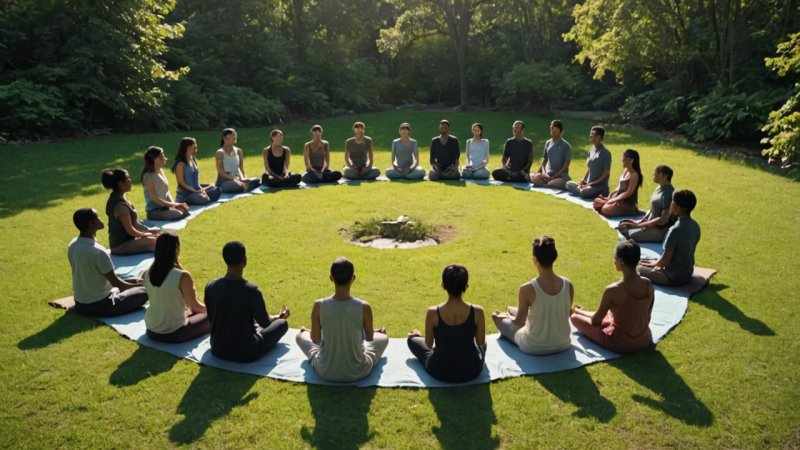In a world increasingly focused on individualism, the significance of collective spiritual practices often gets overshadowed. While personal spiritual journeys can be deeply fulfilling, the communal experience of spirituality offers unique benefits that can enhance overall healing and well-being. This article explores the pros and cons of both approaches, highlighting how they can complement each other in the pursuit of emotional and spiritual health.
Understanding Collective Spiritual Practices
Collective spiritual practices refer to activities that are performed in groups, such as communal prayer, meditation sessions, or group rituals. These practices foster a sense of belonging and community, which can be incredibly healing for individuals facing emotional or spiritual challenges.
Pros of Collective Spiritual Practices
- Community Support: Engaging in spiritual practices with others creates a support network that can offer encouragement and understanding.
- Shared Energy: The energy generated by a group can enhance the spiritual experience, making it more profound and impactful.
- Collective Intent: When a group comes together with a shared intention, the collective focus can amplify the healing process.
- Diverse Perspectives: Participating in group practices exposes individuals to various viewpoints, enriching their own spiritual understanding.
Cons of Collective Spiritual Practices
- Group Dynamics: Not all group interactions are positive; conflicts or misunderstandings can arise, detracting from the experience.
- Loss of Individual Focus: In a group setting, personal needs and intentions may be overlooked, leading to a less personalized experience.
- Pressure to Conform: Individuals may feel pressured to conform to group norms, which can stifle their authentic spiritual expression.
Exploring Individual Spiritual Practices
Individual spiritual practices are personal activities that focus on one's own spiritual journey, such as solitary meditation, personal prayer, or individual rituals. These practices allow for deep introspection and personal growth, tailored to one's unique needs.
Pros of Individual Spiritual Practices
- Personalization: Individuals can tailor their practices to meet their specific spiritual needs and preferences.
- Self-Discovery: Solo practices encourage introspection, leading to greater self-awareness and personal growth.
- Freedom of Expression: Individuals can express their spirituality without the fear of judgment or the need to conform to group expectations.
- Flexibility: Individual practices can be done at any time and in any setting, offering convenience and adaptability.
Cons of Individual Spiritual Practices
- Isolation: Engaging in spiritual practices alone may lead to feelings of loneliness or isolation, especially during challenging times.
- Lack of Accountability: Without a community, individuals may struggle to maintain consistency in their practice.
- Limited Perspectives: Solo practices may result in a narrow view of spirituality, as individuals may lack exposure to diverse beliefs and practices.
Finding Balance: Integrating Both Practices
While collective and individual spiritual practices each have their own strengths and weaknesses, integrating both can create a well-rounded approach to spiritual healing. Here are some ways to find that balance:
- Participate in Group Activities: Engage in community spiritual practices while still maintaining your individual routines.
- Reflect on Group Experiences: Use insights gained from group practices to inform and enrich your solo spiritual journey.
- Share and Connect: Share your individual experiences with your group, fostering a deeper understanding and connection.
- Adapt and Personalize: Take elements from collective practices that resonate with you and incorporate them into your individual practices.
Conclusion
Ultimately, both collective and individual spiritual practices offer valuable pathways to healing and self-discovery. By recognizing the unique benefits and challenges of each, individuals can create a harmonious blend that supports their spiritual journey. Whether seeking the comfort of community or the introspection of solitude, the key lies in understanding that both approaches can coexist and complement one another, leading to greater emotional and spiritual well-being.






